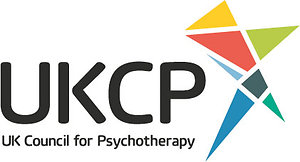Why have Counselling/Psychotherapy?
At certain times, our emotional health may need professional consideration, and so it is always important to address what may be emotionally difficult for you. Whilst some problems can be dealt with on your own, others need the guidance of a skilled professional.
What Conditions Can Psychotherapy Help?
Psychotherapy can help a multitude of emotional, relational and psychosomatic conditions, associated with work; family relationships; intimate relationships; stress; anxiety; depression; managing anger or simply not feeling you are achieving the life you want to lead.
What Benefits can be Expected?
We are all individual. Our emotional strengths and vulnerabilities differ, just like our physical strength and stamina. Therapy will therefore be a personal process helping improve emotional health and functioning over time and even post treatment.
Choosing a proactive solution to solve any difficulties or distress can often be challenging and demanding. Taking the decision to seek a professional psychotherapist, is being proactive in getting help.
Please feel free to contact me by email with any questions.
What is psychotherapy?
Psychotherapy is a formal and professional relationship within which an individual can explore difficult, and often painful, emotions and experiences. It is a collaborative effort between therapist and client which seeks to increase the capacity for self awareness and choice.
By exploring ideas together and being curious about behavior and what lays behind it, the process of good psychotherapy can help people to deal with their emotional or psychological problems and live more satisfying and fulfilling lives.
What is the difference between psychotherapy and counselling?
While counselling tends to be shorter term and focuses on the resolution of a specific issue or immediate crisis, psychotherapy usually takes longer and goes into deeper rooted issues. The aim of psychotherapy is to facilitate fundamental changes within the whole of the person.
How is it different from talking with a friend?
The support of family and friends during difficult times can be invaluable, but even the most well intentioned friend or family member cannot offer what psychotherapy does. Besides issues about confidentiality, the lives of our loved ones are inevitably intertwined with our own, and communication takes place within the framework of a set of basic assumptions about our place within our family or social system. This system may be threatened if an individual within it starts to challenge those assumptions. Psychotherapy, however, aims to empower the individual.
How do I know if I need psychotherapy?
If talking to friends or reading self help books has failed to help you make a change for the better in your life and you are frustrated with the way things seem to be turning out, psychotherapy may be able to help you. Perhaps you know your problems are too big or complex to handle alone or maybe others have suggested that you need to get help. If, over the years you have tried various strategies and had no real lasting or deep changes or, you seem to be falling short of what you believe to be your full potential in relationships and/or your working life, you may benefit from therapy.
Will I become dependant on the therapist?
Research suggests that the relationship between therapist and client is more important than the type of therapy on offer. This is the most significant factor in determining outcome. Therefore, while it is important to choose someone who is properly qualified and registered with the relevant professional bodies (for example, in the UK, the UKCP and/or the BACP), finding someone that you feel you can trust and who you sense will have hope for you is the best criteria to use.
How long does it take?
It isn't possible to predict the duration of therapy, it depends on the issues you want to work on and how you define success. In general, a specific issue with a short history will probably be dealt with fairly quickly, for example in 10 to 20 sessions of counselling. However, a less specific issue with a long history such as "I always seem to choose the wrong partner" will probably need a much longer time period to be dealt with, maybe six months to several years.
How do I choose a therapist?
Research suggests that the relationship between therapist and client is more important than the type of therapy on offer. This is the most significant factor in determining outcome. Therefore, while it is important to choose someone who is properly qualified and registered with the relevant professional bodies (for example, in the UK, the UKCP and/or the BACP), finding someone that you feel you can trust and who you sense will have hope for you is the best criteria to use.
How do I take the first step?
Once you have decided that you would like to consider entering therapy I recommend an evaluation session. Together we can think about what your goals for therapy might be and at the same time see how it feels to work together. If we are both happy to proceed we can make arrangements to start as soon as it is mutually convenient. If, however, one or both of us feel that we don't 'click' with the other, I would be happy to provide referrals to other therapists.
My counselling and psychotherapy clinic is located in Hampstead in North West London and is easily reached from Belsize Park tube or Hampstead Heath Overground station.


